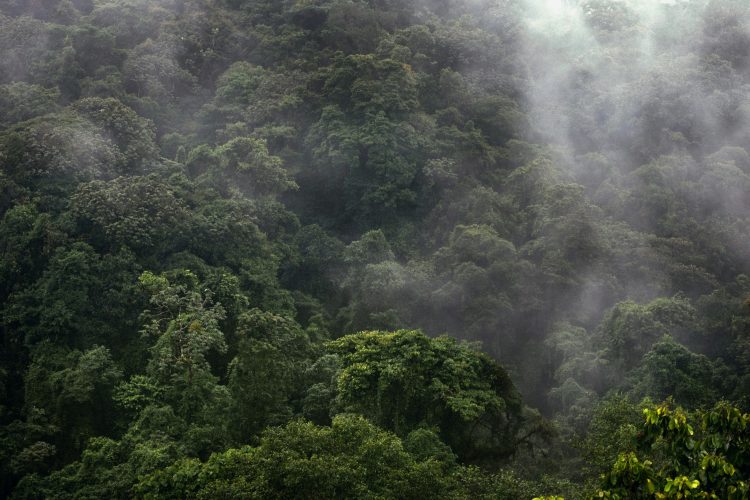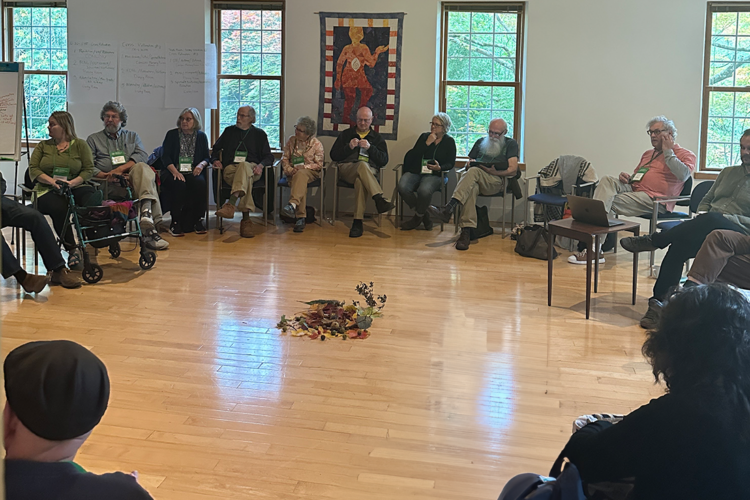Review: Climate, Food, and Violence: Understanding the Connections, Exploring Responses
Review: Climate, Food, and Violence: Understanding the Connections, Exploring Responses

The nexus of climate disruption and food insecurity leading to societal breakdown and violence is one of the most fraught scenarios of our time. This is not a new story. Both the 14th and 17th centuries were times of climate change that resulted in food shortages, famine, increasing societal violence, and outright war.
The contemporary situation is potentially much worse. The greenhouse effect of fossil fuel use is pushing the climate system into a scale of change that will likely bring extreme consequences for human adaptation. The global scale of potential disruption for human settlement and economy is unprecedented. In addition, and making the situation even more ethically vexed, is the concentration of wealth that will allow a privileged elite to shield themselves from the societal breakdown and likely violence that will become endemic in regions of deprivation and poverty.
Responding to the mission of Quaker Institute for the Future (QIF), a group of six researchers and writers (Judy Lumb, Phil Emmi, Mary Gilbert, Leonard Joy, Laura Holliday, and Shelley Tanenbaum) have produced a 107-page book that gathers critical information and analysis on the network of connections between climate disruption, food insecurity, and deadly violence. But more than this, the book also gathers critical information and analysis on what can be done to improve food security and advance food sovereignty, thus forestalling social breakdown and violence in the face of climate stress.
When QIF was established in 2003, its founding document described one of its roles as doing background research that would be helpful to Friends Committee on National Legislation. The proposal for this research project and QIF Pamphlet was brought to the 2011 FCNL Annual Meeting in Washington. The project was positioned to update and amplify a briefing paper on food insecurity and violence that FCNL had previously produced. Complimentary copies of Climate, Food, and Violence were provided to all FCNL staff in October 2014.
Working as a QIF Circle of Discernment, the six participants collaborated over a period of more than two years gathering, combing, and refining the core information analysis to provide the reader with a solid understanding of this complex situation. Coordinated by editor and writer Judy Lumb, the Circle of Discernment was composed of Phil Emmi, Mary Gilbert, Leonard Joy, Laura Holliday, and Shelley Tanenbaum.
Chapter 1 succinctly covers what is now known about the causes and effects of climate change. Chapter 2 deals specifically with the relationship of food production and climate change. Chapter 3 picks up the control of food, which is passing more and more from the sovereignty of local and regional communities to trans-national corporations. Chapter 4 details the way climate change is already affecting access to food and water, and the way these conflicts are leading to violence. Chapter 5 catalogues a list of responses to food insecurity and climate change that can intervene in a wide variety of ways to address the developing situation. Chapter 6 then lays out the specifics of positive response from the personal level to matters of national and international policy and global environmental governance. The book is fully referenced and includes a bibliography, both of which provide excellent guides for further study.
If you realize how critical climate change is in the context of the human future, but are not likely to dig into the scientific and social research documenting it or read a full-length book on the subject, this QIF Pamphlet will fill you in on what is happening, what may happen if current trends continue, and what can be done to alter the situation toward a better outcome. It is ideal for study groups who are reaching for a more fully rounded and ethically grounded understanding of the crisis that is building and what must be done to mitigate its effects.
CLIMATE, FOOD, AND VIOLENCE
can be ordered directly from Quaker Institute for the Future c/o Keith Helmuth (ekhelmuth@mindspring.com). It is available from QuakerBooks of FGC and from Quaker Book Service (CYM, Ottawa). It can also be ordered through your local bookstore or purchased in either hard copy or as an ebook from Amazon. The book also can be downloaded, as can all QIF Pamphlets, from www.quakerinstitute.org.

